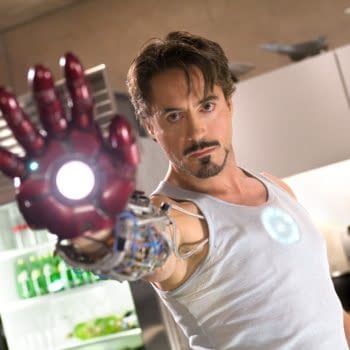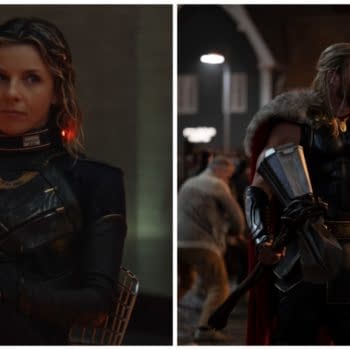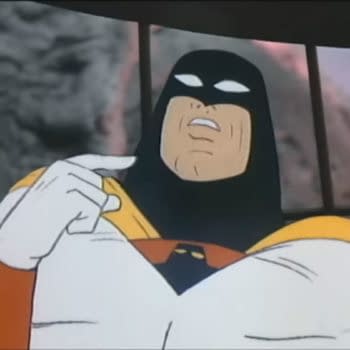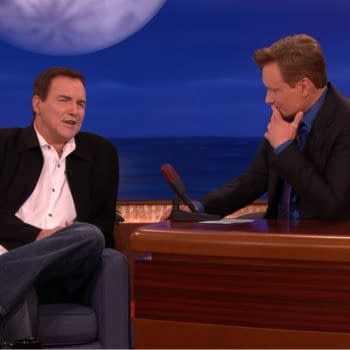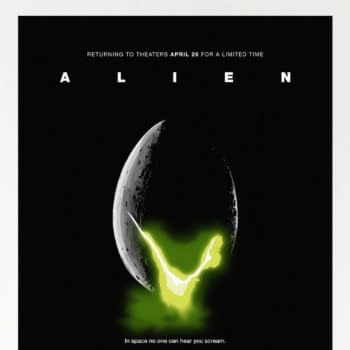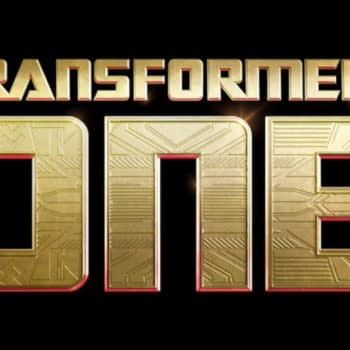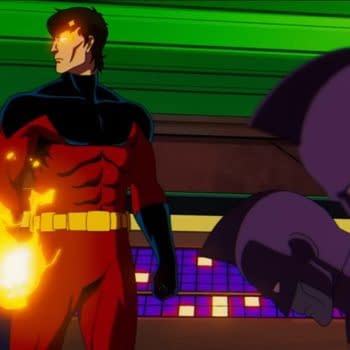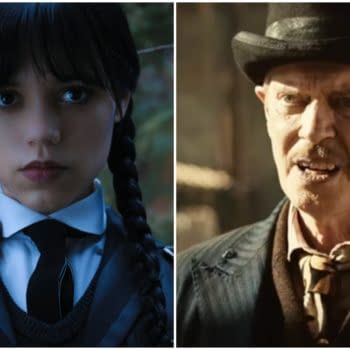Posted in: Movies, TV | Tagged: alan rickman, amblin entertainment, doctor who, DreamWorks Pictures, fandom, galaxy quest, Jodie Whitaker, leonard nimoy, matt smith, patrick stewart, star trek, star wars, tim allen, william hartnell, william shatner
"Galaxy Quest": Re-Examining Fan Culture 20 Years Later [OPINION]
When Galaxy Quest came out in 1999, it offered an original story from the rare perspective of fandom. The film combines elements of Star Trek and comedy into its original hybrid science fiction story. It follows the cast of a fictional TV-show in the 1970s doing another convention to stay relevant. The cast find themselves in real danger tasked to protect an alien species, the Thermians against an imminent threat. They modeled their entire society after their TV series .
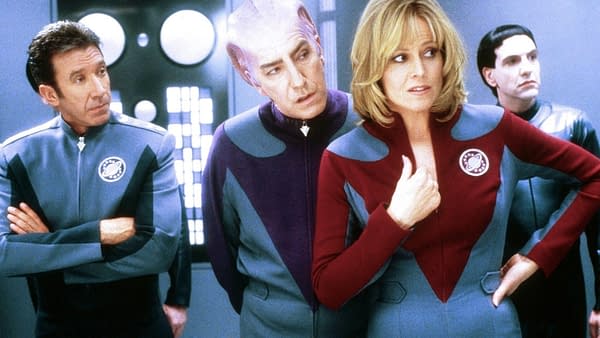
Despite the show being off the air for some time, the actors attempt, but fail miserably to step back into the roles trying to save the Thermians from destruction. The film starred Tim Allen as Jason Nesmith, the lead "actor" on Galaxy Quest modeled after William Shatner. As Jason, he came to appreciate what the series did for his career fulling embracing the attention he gets.
The late Alan Rickman played Alexander Dane as the resident alien character on the series. As a classically-trained Shakespearean actor, he can't hide his shame from the role. Dane was likely modeled after Patrick Stewart and the late Leonard Nimoy. Nimoy released two autobiographies, "I Am Not Spock" in 1975 followed up by "I Am Spock" 20 years later surrounding his life and his role as Mr. Spock on Star Trek.
The contrast between Jason and Alexander represents two polar opposites in the film. The first embraces and takes ownership of the franchise he's known for and the second, a person who wants to define his career beyond his signature role. Shatner, while still embracing the Trek fan base infamously poked fun at himself and fans during a Saturday Night Live sketch. During the convention sketch, he mocks fans to "Get a Life." Gratuitously insulting the attendees for their lack of social skills and not being able to "grow" out of their passion for the franchise.
There are many actors who relate to Alexander, because many in his profession prefer to be known for their whole body of work, but end up just associated with one role and in many instances, typecast within the industry. Many Trek actors were astonished how well Galaxy Quest captured the con experience.
How Fandom Changed Since
When it comes to how fandom evolved, how much have things changed?
The introduction of social media provides a direct way for celebrities and their fans to interact. Obviously, the celebrities can't answer every single fan inquiry, but it provides an extra layer and access never thought imagined. Aside from their additional online presence, the quality of interactions likely remained the same as fans received limited access to the subject due to demand and fixed scheduled time.
Social media also allowed real-time interactive communication between fans. Many become content generators expressing opinions on all things pop culture. Some like here at Bleeding Cool even became profitable. While there are numerous robust discussions from reviews, news items or op-eds on a subject, many of them end up counterproductive in the comments. It's funny how a medium like comics provides so much diverse possibilities, but when attention turns to a more mainstream medium like television or film, standards become far more rigid.
Criticism vs. Entitlement Culture
Fans have more power and access than ever before, but unfortunately, too many abuse that power. Some turn their disagreements to crusades. Until you control the IP, the owners aren't obligated to meet your demands. You can hate Star Wars and Star Trek all you want, but nothing you do can change the minds of CBS, Paramount or Lucasfilm. Want to show them how to do it right? Create your own IP and be successful. Or express yourself and make peace with it. Pick and choose your battles.
There are different flavors of fans of every franchise and for the most part, it remains largely civil. You're not going to find The Original Series fans shame The Next Generation fans in the Star Trek paradigm. Some fans think Deep Space Nine is the best and all I would do is ask why. Same thing goes for generations of Star Wars films. People grew up with their own trilogy and likely have a difference of opinion on how the different eras stack up.
We're All One Community
That's the one thing you don't see in Galaxy Quest: how fans dealt with discourse. As nerds, geeks, and fans alike, we have the luxury to explore all these different facets of the universe from TV, film, games, and paraphernalia. If anything we are dreamers and explorers. The franchises we love and adore are just extensions of ourselves. These are characters we relate to, who resonate with us. If you started watching Doctor Who with Jodie Whitaker, it certainly doesn't make you less a fan than when William Hartnell or Matt Smith took on the role.
If there are things to take away fan culture from 1999 compared to 2019, we have greater access and influence than ever before. As nerds and geeks, we're no longer just live on the fringes of society. We become more the mainstream. The world is catching up with the times and changing and so should we. The world of Galaxy Quest showed a simpler time of benevolence within fan culture. Generations still adore the film today.






